- News
- Reviews
- Bikes
- Accessories
- Accessories - misc
- Computer mounts
- Bags
- Bar ends
- Bike bags & cases
- Bottle cages
- Bottles
- Cameras
- Car racks
- Child seats
- Computers
- Glasses
- GPS units
- Helmets
- Lights - front
- Lights - rear
- Lights - sets
- Locks
- Mirrors
- Mudguards
- Racks
- Pumps & CO2 inflators
- Puncture kits
- Reflectives
- Smart watches
- Stands and racks
- Trailers
- Clothing
- Components
- Bar tape & grips
- Bottom brackets
- Brake & gear cables
- Brake & STI levers
- Brake pads & spares
- Brakes
- Cassettes & freewheels
- Chains
- Chainsets & chainrings
- Derailleurs - front
- Derailleurs - rear
- Forks
- Gear levers & shifters
- Groupsets
- Handlebars & extensions
- Headsets
- Hubs
- Inner tubes
- Pedals
- Quick releases & skewers
- Saddles
- Seatposts
- Stems
- Wheels
- Tyres
- Health, fitness and nutrition
- Tools and workshop
- Miscellaneous
- Tubeless valves
- Buyers Guides
- Features
- Forum
- Recommends
- Podcast
TECH NEWS
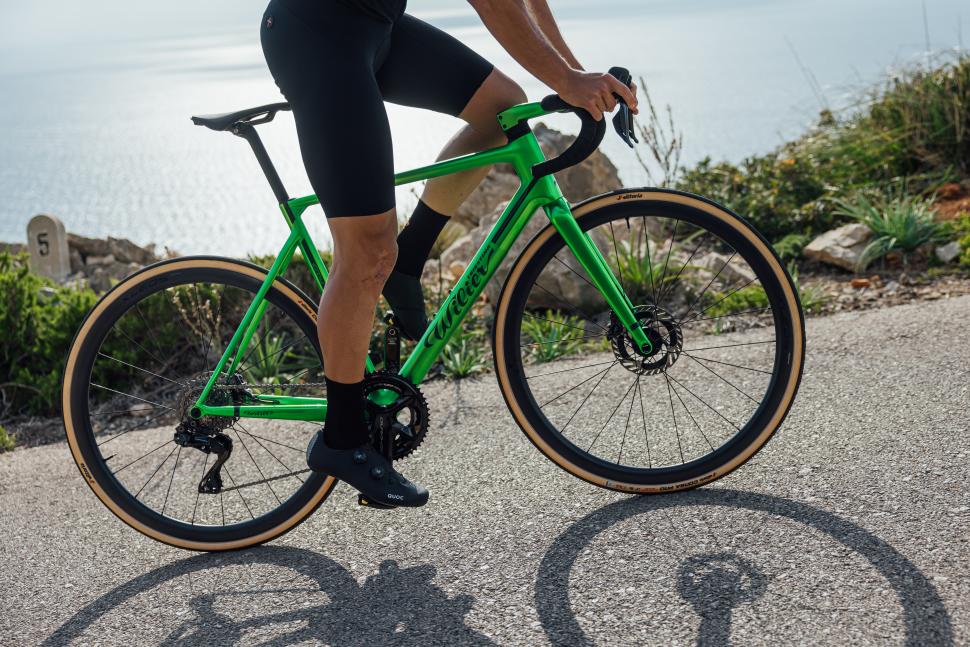 WilierVerticaleAction-1395
WilierVerticaleAction-1395Wilier unveils its "lightest ever bike", the Verticale SLR... and it's (we think) even lighter than the Specialized Tarmac SL8
Wilier Triestina has officially launched its latest road bike, the Verticale SLR – a climbing bike that we already spotted at the Criterium de Dauphine earlier this month. Touted as its lightest bike to date, the Verticale SLR has been through some quite significant changes compared to its predecessor, the Wilier 0 SLR, with an almost 10% reduction in weight, an all-new handlebar, carbon layout and some frame design changes. And the prices, well, they've stayed at the upper end – you're looking at £9,000 for the 'cheapest' full build.
Wilier Verticale SLR - frame and component updates
For a climbing bike like the Verticale SLR, weight is important, and Wilier says the frame, seatpost and fork tip the scale at 1,353g. That's a fair bit lower than the outgoing 0 SLR, and when adding the Verticale's new handlebar in, we've got it at 1,663g compared to 1,819g for the 0 SLR.
All these parts combined is perhaps a less typical way of expressing weight in bike industry press release land, as we're more used to seeing frameset or full bike weights; but comparing to the components of other lightweight bikes and doing some quick sums, it's pretty impressive stuff if Wilier's claims are correct: the Specialized Aethos S-Works, for example, comes in at 1,230g for the same three parts, and that bike was specifically made to ignore the UCI's weight limit rules.
Sticking with Specialized, we've calculated that its flagship Tarmac SL8, with a 680g frame, comes in at 1,410g for the frame, fork and seatpost, which would make Wilier's offering the lightest in the pro peloton. We can't vouch for Wilier's frame being lighter because it doesn't give us a frame-only weight, but it would seem some very lightweight Verticale SLR builds way under 6.8kg could be possible.
Central to the Verticale SLR's newfound lightweight-ness is its premium carbon frame and new integrated handlebar. The frame is constructed from three types of carbon fibres courtesy of Toray, a leading Japanese manufacturer: T800, T1100, and M46JB. According to the Italian brand, these fibres provide a combination of high tensile strength and superior torsional stiffness, ensuring the bike remains lightweight yet robust.
The selected carbon fibres are then "impregnated with special epoxy resins and prepared for use in pre-impregnated rolls referred to as pre-preg, which are subsequently cut into more than 400 outlines with various types of shape and reinforcement orientations," Wilier explained.
In addition to all that, Wilier has also used an "Active Moulding" system on the frame, utilising "special foamed polymer counter moulds, enhancing material consolidation and hardening during the curing process".
New V-Bar handlebar
The new carbon monocoque handlebar – dubbed the 'V-Bar' by Wilier – has a claimed weight of 310g and features a unique shape with a narrower hood width and wider drops – adjustments that Wilier says will help with aerodynamics and handling during sprints.
It goes without saying that as the UCI has clamped down on excessively tilted shifters this year, the new narrower bar delivers similar gains while complying with the governing body's regulations. With that, the new handlebar comes in six widths ranging from 37cm to 39cm (measured on the hoods) and with stem lengths ranging from 90 to 150mm stems.
Wilier says the new cockpit is compatible with all of its other bikes, so you could upgrade your existing set-up to the new one.
And of course, as was already the case with the 0 SLR and Wilier's Aero road bike, the Filante SLR, the handlebar is fully integrated with the cables residing neatly (or perhaps painfully, if you're a mechanic) inside the bar.
Other frame updates
Beyond the frame material, the Verticale SLR introduces some design changes from the Wilier 0 SLR as well.
Starting at the seat clamp – unlike the Wilier 0 SLR, the Verticale SLR's seatpost clamps diagonally from the bottom (from inside the frame triangle) rather than the top. According to Wilier, this shaved off some weight from this "critical point of the frame". And talking of the seatpost, it has also been redesigned with two possible setbacks (0° and -15°) and features special holes for installing a rear light or race number.
The Verticale SLR's front derailleur is now repositionable and no longer riveted to the frame. This reduces the coupling weight and offers more versatility in mounting different cranksets from compact to the oversized dinner plates the pros might use.
The rear dropout has also been redesigned to prevent rotation and enhance reliability. The new cantilevered, interchangeable dropout creates more space between the chain and the seat stays, which according to Wilier should eliminate chain contact with the frame.
The fork has retained its asymmetrical shape, and the right seat stay sections are lighter and thinner. "The challenge was to improve the weight and performance of an apparently simple component," Wilier said - highlighting how the rod housing the brake callipers has been oversized, and the left fork stay is twisted. Wilier said this shape is an improvement for two reasons: the improved orientation of the carbon fibres during rolling (to respond better to stresses) and the improved resistance to forces exerted by the callipers during braking. The Kamm tail gives the fork greater stiffness while improving the overall feeling during braking. The fork crown has also been strengthened.
And lastly, the frame is compatible with wireless and semi-wireless groupsets.
Wilier Verticale - geometry
Wilier says it has adjusted the frame and handlebar geometries of the Verticale SLR "for better performance". In reality, this means a slight change in the reach figures – it's shorter for sizes XS and S and longer for sizes XL and XXL compared to Wilier's classic geometry it utilises on its other bikes.
There are still six size options available, and across the range, you can also see slight changes to the wheelbase (shorter) and the stack numbers (higher, even though Wilier said they remain unchanged). Wilier said it's also paid special attention to the handlebar, in particular the stem tilt angle in relation to the fork sleeve, which ranges from 7.5 to 10.5 degrees.
Wilier Triestina Verticale SLR - models and pricing
As mentioned earlier, the Verticale SLR is premium performance bike, ridden by the pro teams Astana Qazaqstan and Groupama-FDJ, and the price tags match that premise of premium performance.
While the Filante SLR and the 0 SLR both had starting prices at £9,710 (Wilier introduced a cheaper Filante SL last year) the lowest spec Verticale SLR costs a tiny bit less at £9,000. That build gets you a Shimano Ultegra Di2 2x12 groupset, Miche Kleos 36 wheels and, as standard for all of the models, the V Bar cockpit, rear light and a computer mount.
You can also get a SRAM Force AXS 2x12 build with the same wheels for £9,200, or if you add a power meter to that you're looking at £9,700.
The rest of the range comes with the same frameset but rolls on Miche Kleos Rd 36 wheels, and you're looking at £11,000 for a Dura-Ace Di2 9270 build, or £12,200 with a power meter – and at the top of the range sits the SRAM Red AXS 2x12 build retailing for £12,500. The frameset on its own costs £5,500.
You can find out more about the Verticale on Wilier's website.
Suvi joined F-At in 2022, first writing for off-road.cc and then road.cc and ebiketips too until August 2024. She contributed to all of the sites covering tech news, features, reviews and women's cycling content. A lover of long-distance cycling, Suvi is easily convinced to join any rides and events that cover over 100km, and ideally, plenty of cake and coffee stops.
Latest Comments
- mark1a 2 sec ago
No issues here with Edge 1050 and Venu 2 Plus, although I've plugged them both into GE just to make sure that they're up to date with any fixes.
- JN35000 19 min 16 sec ago
I can watch the Tour de France live on France TV but I much prefer to switch to ITV. David Millar has an ability to describe the race tactics that...
- mark1a 23 min 25 sec ago
I can highly recommend Argos (not the shop), rather Argos Racing Cycles in Bristol, I couldn't be more happy with the restoration frameset they...
- wtjs 28 min 29 sec ago
I don't need proof! Faith has shown me the True Path from which there must be no deviation
- S.E. 30 min 5 sec ago
Better tyres, but weirdly enough almost no snow on this mountain.
- wtjs 34 min 55 sec ago
BMW, Audi, GTI etc. drivers are immune to sob stories about dead cyclists and children.
- S.E. 54 min 7 sec ago
You need to take wind chill/effect into account... at TT's speeds pouring water is certainly highly effective!
- pete666 1 hour 6 min ago
"89. Eighty nine years old and still allowed behind the wheel of a multi tonne weapon. Absolutely mad."...
- Steve Garratt 1 hour 22 min ago
Agree 100% regarding riding round that circuit at 5.30am. I don't own an £8000 bike, but even on one of my £1500 to £3500 bikes, I would now be...
- mdavidford 1 hour 35 min ago
Yeah, but all those guys have got an asterisk against them, so they don't count...
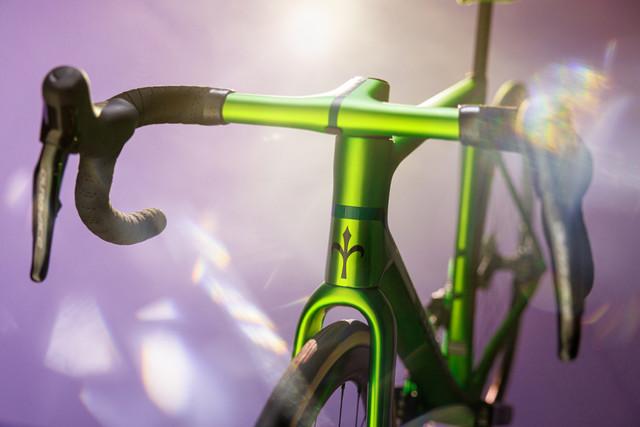
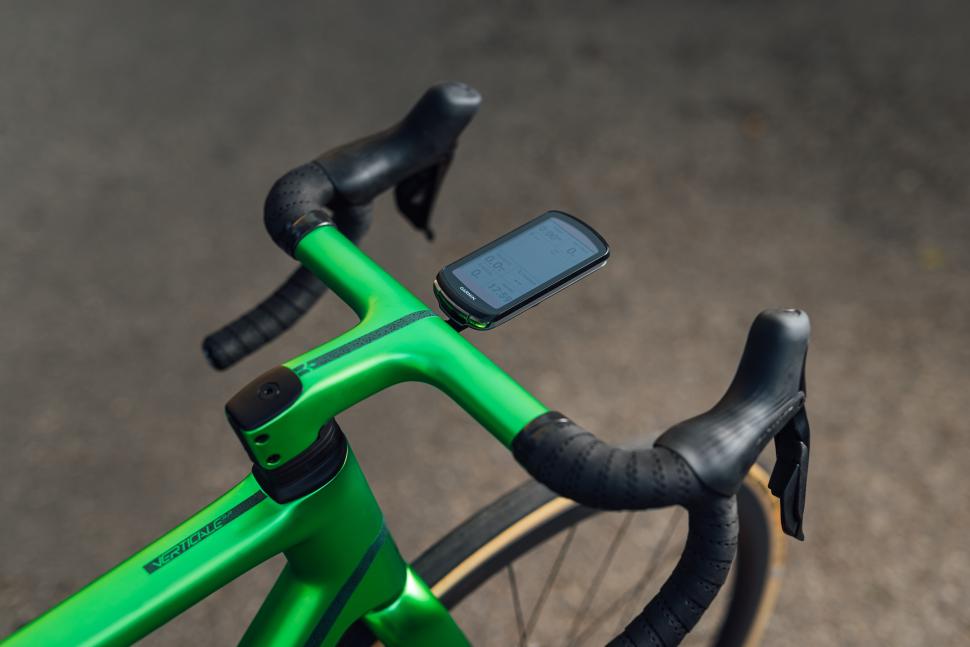
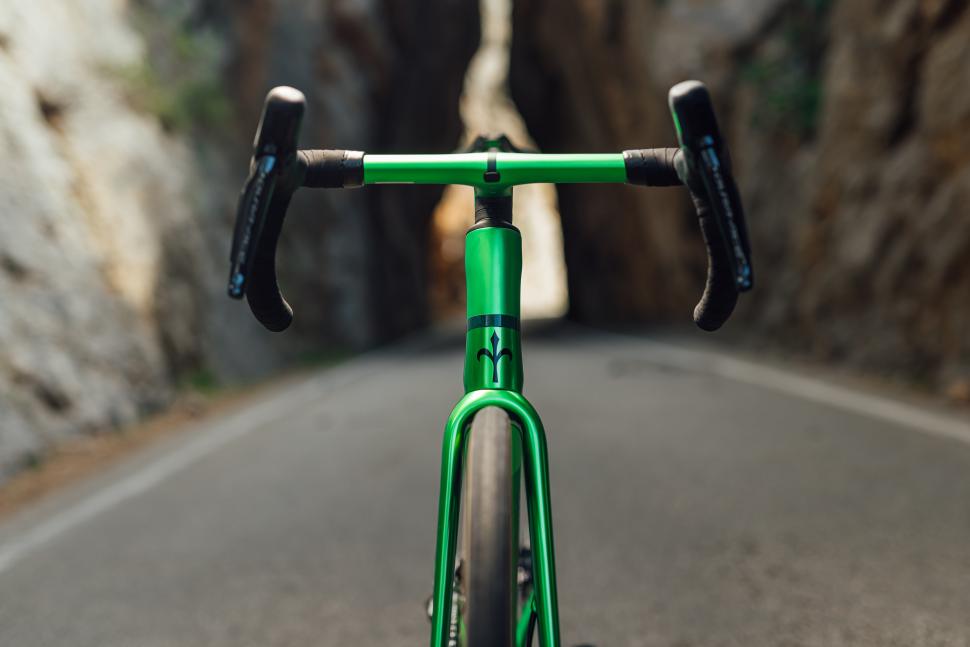
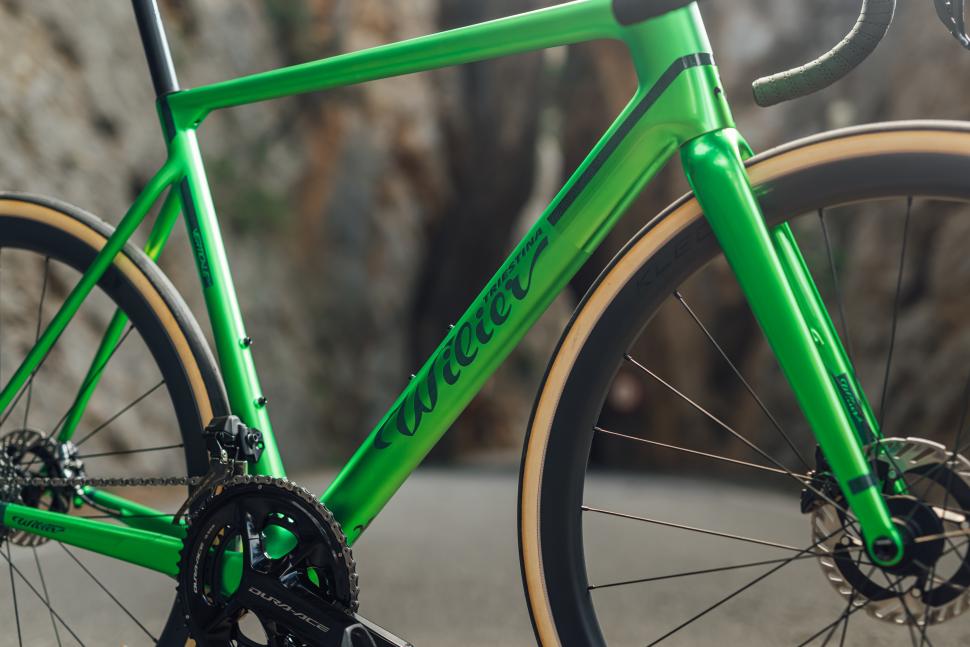
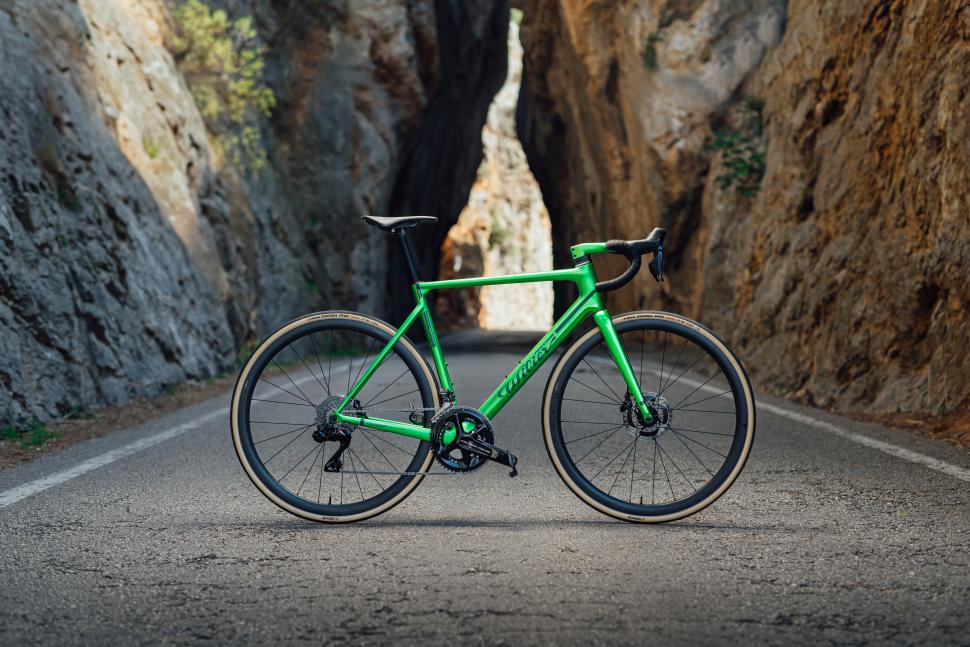
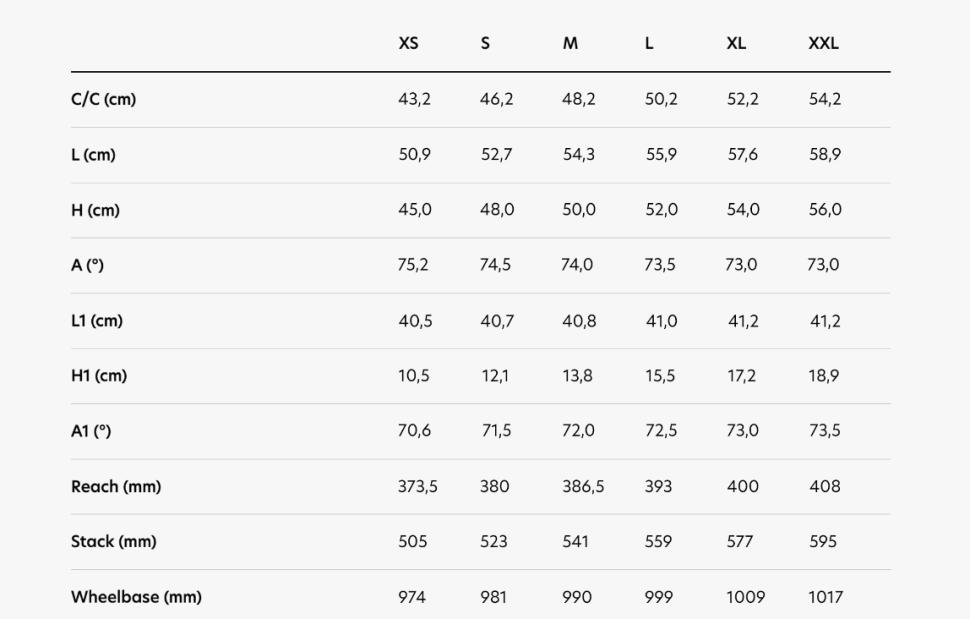
Add new comment
6 comments
You would have to be mad to buy the handlebars; 1100eur for 310g vs Darimo who are selling integrated bars for 900eur and are 80g lighter!
To be fair separate bars and stems from Darimo are about the same weight and are more like 750eur
Specialized offers the SL 8 as S-Works and normal Version and to be honest the normal version is everything I need and it cuts the price to a starting point of £4,250.00 which is still a lot but far more achievable.
The Willier is beautiful, do they offer something like Specialized?
.. and I'm not a fan of the pressfit BB
Why do any (non pro, non-racers ie almost everyone) riders care what the UCI regs on weight and handlebar angles are??
It's definitely a legitimate marketing point for people that want the lightest bike possible. As for handlebars, flared bars are also have a comfort factor for many people
Nice. It seems like no time since the lightest frames (without forks) were barely the cracking the 1,000 gramme mark.
I had a sub 800g frame in 2009, and that's a 56cm frame(Cervelo R3 SL). Disc brakes upped that and made it more difficult but it didn't take long to get a sub 1000g frame then either.